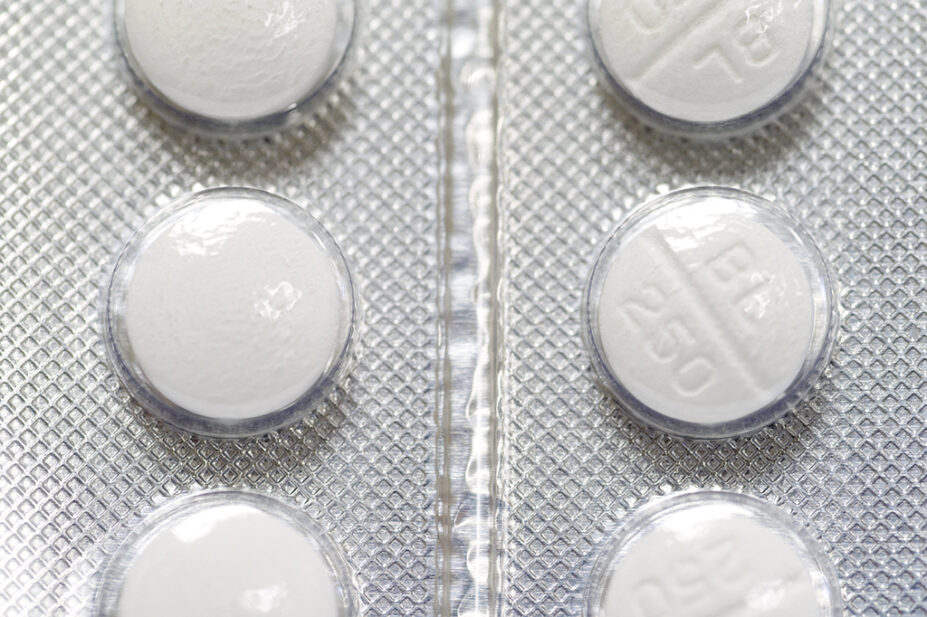
DR P. MARAZZI/SCIENCE PHOTO LIBRARY
Community pharmacies in England dispensed a record number of items using serious shortage protocols (SSPs) in December 2022, following the publication of eight SSPs for antibiotics, data analysis by The Pharmaceutical Journal has revealed.
The SSPs were published in December 2022 in light of an increase in Strep A cases among children, which led to supply problems for antibiotics, including phenoxymethylpenicillin oral solutions and tablets.
Under the eight SSPs, pharmacists were allowed to supply alternative strengths or tablets with immediate effect.
Data from the NHS Business Services Authority, obtained by the The Pharmaceutical Journal through a freedom of information request, show that pharmacists dispensed 12,858 items using an SSP in December 2022, with antibiotics accounting for 98% (12,625) of these items. A further 12,259 items were dispensed using SSPs in January 2023 (see Figure).
The number of monthly items dispensed through SSPs had previously peaked in March 2021, when pharmacies dispensed 6,547 such items.
SSPs were introduced in October 2019, allowing pharmacists to respond to a medicines shortage in one of four ways specified within the protocol: by dispensing a reduced quantity; a therapeutic equivalent; a generic equivalent; or an alternative dosage form of the drug.
The measures were proposed during a one-week consultation period with pharmacy bodies, as part of preparations for a ‘no-deal’ Brexit in 2018. More than 50 SSPs have been issued since then.
However, pharmacists have described SSPs as “complex and time-consuming” to use and called for legislation to allow them the ability to make amendments relating to “the quantity, strength or dosage” of a prescribed medicine without the need for a protocol.
Commenting on the spike in items dispensed using an SSP, Gordon Hockey, director of legal at Community Pharmacy England, said: “Although pharmacy usage of SSPs has increased during this period, it is relatively low given the number of prescriptions usually issued for these [penicillin] V formulations.
“There are various reasons for this; for example, prescribers switching to alternative products when there are shortages and SSPs are issued, but we consider that a key reason is the nature of the SSPs themselves — they are blunt and complex tools to use.”
Hockey added that the fee has remained at £5.35 per SSP-endorsed prescription since 2019 “and the claiming process is problematic for many pharmacy teams”.
The fee for SSPs is “an average between relatively frequently used formulation changes and relatively rarely used (and clinically more involved) product substitutions”, he said.
“When the majority of SSP use relates to product substitution, as it did when the [penicillin] V SSPs were issued, the overall fees are too low for the workload involved.
“We urge ministers to consider greater flexibility for pharmacists to carry out simple changes, such as quantity, strength and formulation changes, without the need for prescriber authorisation. Pharmacists are eminently qualified to do this.”


